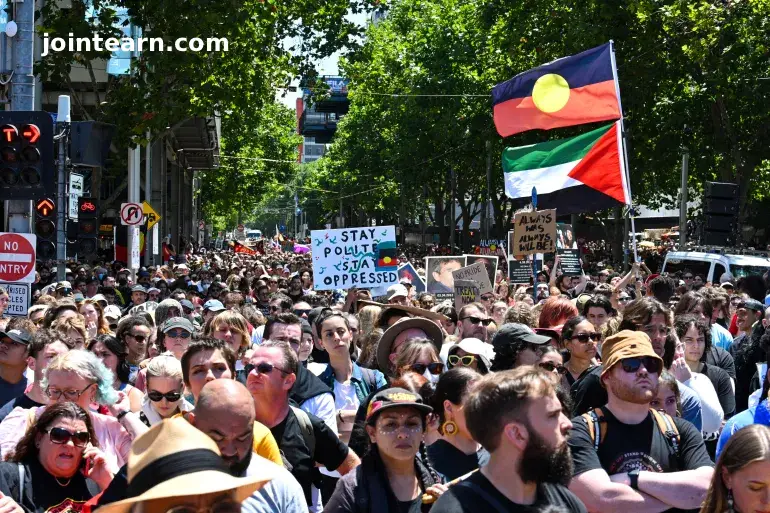
In a historic milestone, the state of Victoria has become the first in Australia to sign a treaty with Indigenous people, more than 220 years after British colonisation. The treaty formalises the creation of a permanent First Peoples’ Assembly and establishes a truth-telling body to address past injustices.
Treaty Signing Ceremony Marks Historic Moment
Members of Victoria’s First Peoples Assembly gathered for a ceremony on Wednesday evening to sign the treaty. The agreement was subsequently endorsed by state Governor Margaret Gardner on Thursday morning.
Jill Gallagher, a Gunditjmara woman and former commissioner of the Victorian Treaty Advancement Commission, described the treaty as “the story of the Aboriginal people’s resistance.”
“Today marks a turning point in our nation’s history, a moment where old wounds can begin to heal and new relationships can be built on truth, justice and mutual respect,” Gallagher said.
Victoria’s Premier Jacinta Allan hailed the treaty as a new chapter in the state’s history, emphasizing partnership and respect as central pillars of the agreement.
“It is a chapter that is founded on truth, guided by respect and carried forward through partnership … a partnership to build a stronger, fairer, more equal Victoria for everyone,” Allan said.
Australia’s First Treaty in Context
Australia was colonised by the British Empire in 1788, with settlers arriving in what is now Victoria in the early 1800s. While countries like Canada, New Zealand, and the United States entered into treaties with Indigenous peoples, Australia had not signed any such agreements—until now.
The treaty has been described as historic by the United Nations human rights chief Volker Turk, who emphasized its potential to transform Indigenous representation and influence.
“The treaty addresses the continued exclusion of and discrimination against the country’s First Peoples – the result of colonisation,” Turk said.
“It has the potential to be truly transformative, ensuring the First Peoples have a direct voice in advising and shaping laws, policies and practices that affect their lives.”
Truth-Telling and the Yoorrook Justice Commission
The treaty process began in 2016 and included the Yoorrook Justice Commission, a formal truth-telling body that concluded in June 2025. The commission heard from Indigenous people affected by colonisation, including members of the Stolen Generations, who were forcibly removed from their families and communities by state and religious authorities.
Australia also held a 2023 referendum to change the constitution and create a permanent Indigenous voice to inform parliament. Although the referendum failed, it followed the 2017 Uluru Statement from the Heart, which highlighted the 60,000-year ancestral ties of Indigenous people to their land and called for recognition in national governance.
Significance and Next Steps
The signing of the treaty represents a historic reconciliation effort, addressing centuries of marginalization and providing a platform for Indigenous Australians to influence laws and policies that affect their lives. Experts and Indigenous leaders alike view the treaty as a critical step toward justice, recognition, and equality in Victoria and potentially across the country.


Leave a Reply